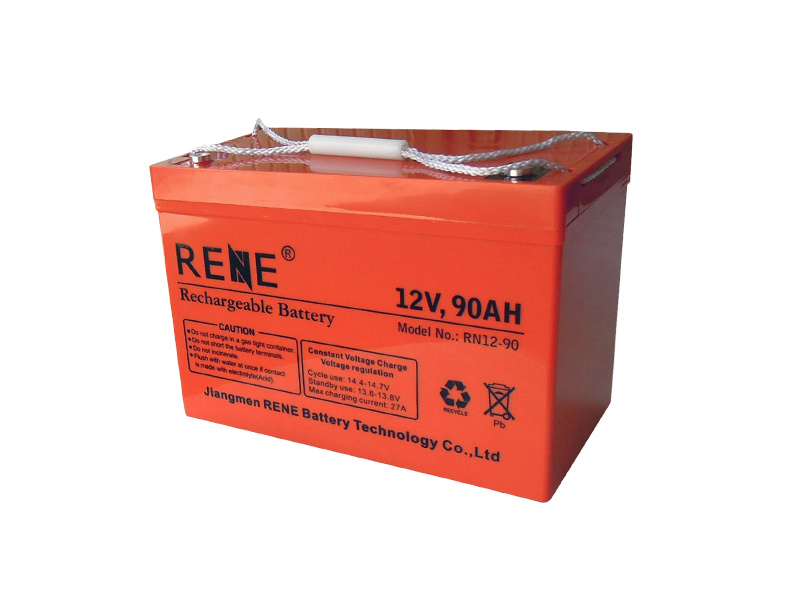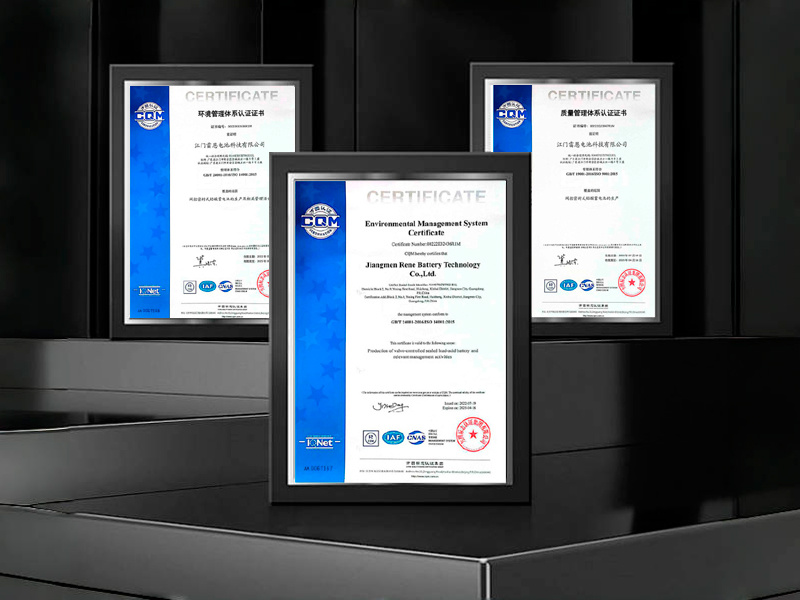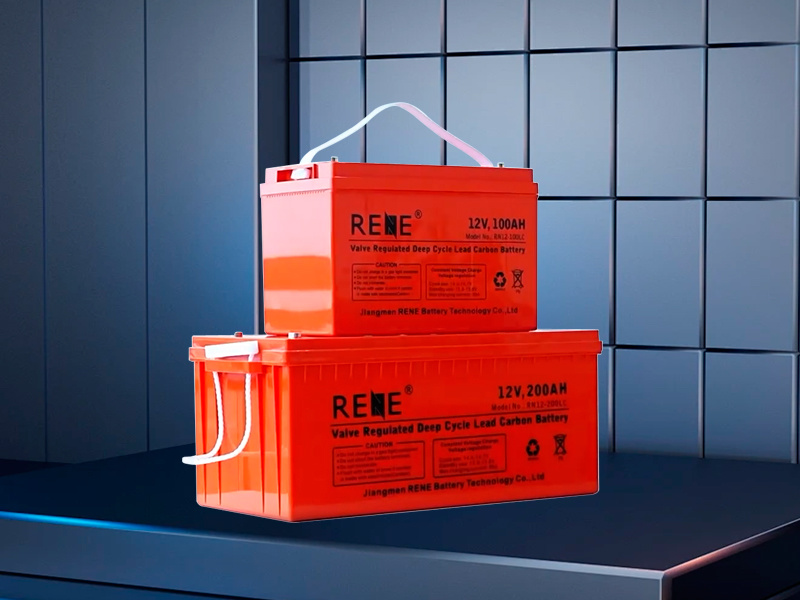Jiangmen Rene Battery Technology Co., Ltd.
Unlocking the Potential of Customized 4V Lead-Acid Batteries for Automotive Needs
2025-05-11
Unlocking the Potential of Customized 4V Lead-Acid Batteries for Automotive Needs Table of Contents 1. Introduction to 4V Lead-Acid Batteries 2. Understanding Lead-Acid Batteries 3. Benefits of 4V Lead-Acid Batteries 4. Customization Options for Automotive Applications 5. Applications in the Automotive Industry 6. Technical Specifications of Customized 4V Batteries 7.

Unlocking the Potential of Customized 4V Lead-Acid Batteries for Automotive Needs
Table of Contents
- 1. Introduction to 4V Lead-Acid Batteries
- 2. Understanding Lead-Acid Batteries
- 3. Benefits of 4V Lead-Acid Batteries
- 4. Customization Options for Automotive Applications
- 5. Applications in the Automotive Industry
- 6. Technical Specifications of Customized 4V Batteries
- 7. Environmental Impact of Lead-Acid Batteries
- 8. Installation and Maintenance of Customized Batteries
- 9. Conclusion
- 10. FAQs
1. Introduction to 4V Lead-Acid Batteries
Customized 4V lead-acid batteries are becoming increasingly vital in the automotive sector. With a unique ability to cater to specific needs and requirements, these batteries offer exceptional performance, reliability, and efficiency. As vehicle technology evolves, the demand for specialized energy storage solutions has surged. Understanding the potential of these batteries can help manufacturers, automotive technicians, and consumers make informed decisions.
2. Understanding Lead-Acid Batteries
Lead-acid batteries have been a staple in the automotive industry for decades. They consist of lead dioxide (PbO2) as the positive plate, sponge lead (Pb) as the negative plate, and a sulfuric acid (H2SO4) electrolyte. The basic chemistry allows for efficient energy storage and release, making these batteries ideal for starting, lighting, and ignition (SLI) applications in vehicles.
**Two types of lead-acid batteries** dominate the market:
- **Flooded Lead-Acid Batteries**: Commonly used in standard vehicles, they require regular maintenance and topping off with distilled water to prevent sulfation.
- **Sealed Lead-Acid Batteries**: Maintenance-free and often used in applications where space is limited or where weight is a concern.
The **4V variant** of lead-acid batteries is particularly intriguing due to its compact design and ability to deliver sufficient power for various automotive applications.
3. Benefits of 4V Lead-Acid Batteries
Customized 4V lead-acid batteries offer several benefits that make them an attractive choice for automotive applications:
3.1 Enhanced Power Delivery
These batteries provide a consistent voltage output, ensuring that automotive systems receive the power they require for optimal performance.
3.2 Lightweight Design
The compact size and lightweight nature of 4V batteries make them suitable for high-performance vehicles, electric carts, and specialized automotive applications where weight reduction is critical.
3.3 Cost-Effectiveness
Compared to other battery types, lead-acid batteries are generally more affordable. Customization allows users to find the best balance between performance and cost.
3.4 Longevity and Reliability
With proper maintenance, lead-acid batteries can last several years. Customized options can enhance lifespan by selecting materials and designs suited to specific usage scenarios.
3.5 Recycling and Sustainability
Lead-acid batteries have one of the highest recycling rates among battery types. Custom solutions can incorporate eco-friendly practices to further reduce environmental impacts.
4. Customization Options for Automotive Applications
The ability to customize 4V lead-acid batteries opens up a myriad of possibilities for automotive applications. Customization can include:
4.1 Size and Shape Adjustments
Manufacturers can design batteries to fit specific compartments in vehicles, ensuring a snug fit without sacrificing performance.
4.2 Enhanced Chemical Formulations
By altering the electrolyte composition and plate materials, manufacturers can create batteries tailored for specific environmental conditions or usage patterns.
4.3 Terminal Configurations
Different terminal types can be customized to suit various automotive electrical systems, ensuring seamless integration with existing components.
4.4 Intelligent Battery Management Systems (BMS)
Incorporating sophisticated BMS can help monitor battery health and performance, providing real-time data to users and enhancing the overall experience.
5. Applications in the Automotive Industry
Customized 4V lead-acid batteries find applications in numerous areas within the automotive sector:
5.1 Electric Vehicles (EVs)
While most EVs utilize lithium-ion technology, 4V lead-acid batteries can be incorporated into hybrid systems or as auxiliary power sources for specific functions.
5.2 Start-Stop Systems
In modern vehicles featuring start-stop technology, these batteries can provide the necessary power during engine restarts, enhancing fuel efficiency.
5.4 Automotive Accessories
From GPS systems to entertainment units, customized 4V batteries can support various automotive accessories that require stable power supplies.
5.5 Mobility Devices
4V lead-acid batteries are also used in scooters and wheelchairs, providing a reliable power source for mobility devices.
6. Technical Specifications of Customized 4V Batteries
When considering customized 4V lead-acid batteries, several technical specifications are crucial:
6.1 Voltage and Capacity Ratings
The voltage output and amp-hour (Ah) ratings must align with the requirements of the intended application. Custom designs can optimize these ratings for enhanced performance.
6.2 Charge Cycles
Understanding the number of charge cycles a battery can deliver before performance declines is essential for users needing longevity.
6.3 Discharge Rates
The discharge rate indicates how quickly the battery can deliver power. Customized options can enhance discharge capabilities for demanding applications.
6.4 Operating Temperature Range
Customization can ensure that batteries perform reliably across various temperatures, critical for automotive applications exposed to extreme conditions.
7. Environmental Impact of Lead-Acid Batteries
While lead-acid batteries have various advantages, it is essential to consider their environmental impact.
7.1 Recycling and Reuse
Lead-acid batteries are highly recyclable, with many components being recoverable. Manufacturers can implement recycling programs that promote sustainability.
7.2 Lead Management
Proper handling and disposal of lead materials are crucial to minimizing environmental harm. Customized solutions can incorporate practices that enhance safety and reduce waste.
7.3 Energy Efficiency
By tailoring batteries for specific applications, manufacturers can improve energy efficiency, reducing overall environmental footprints.
8. Installation and Maintenance of Customized Batteries
Understanding the installation and maintenance of customized 4V lead-acid batteries is crucial for maximizing their lifespan and performance.
8.1 Proper Installation Techniques
Correct installation procedures ensure optimal performance. It is essential to follow manufacturer guidelines and recommendations.
8.2 Regular Maintenance Practices
Regularly checking battery terminals, cleaning corrosion, and monitoring fluid levels can enhance battery longevity. Custom batteries may include features that reduce maintenance needs.
8.3 Storage Recommendations
For vehicles that may not be used frequently, proper storage of the battery is essential to prevent damage and ensure reliability when needed.
9. Conclusion
Customized 4V lead-acid batteries represent a significant advancement in automotive energy storage solutions. Their adaptability, cost-effectiveness, and environmental benefits make them a compelling choice for various applications in the automotive industry. Understanding the unique features and options available allows manufacturers, technicians, and consumers to harness these powerful batteries to enhance vehicle performance and efficiency.
10. FAQs
10.1 What are the advantages of customized 4V lead-acid batteries over traditional batteries?
Customized 4V lead-acid batteries offer enhanced performance, efficiency, and adaptability for specific automotive applications, making them a superior option in many scenarios.
10.2 How long do customized lead-acid batteries typically last?
With proper care and maintenance, customized lead-acid batteries can last several years, depending on usage and environmental conditions.
10.3 Are customized 4V batteries suitable for electric vehicles?
Yes, while most EVs use lithium-ion batteries, customized 4V lead-acid batteries can serve as auxiliary power sources or in hybrid systems.
10.4 How can I ensure proper maintenance of my customized battery?
Regularly check terminals, clean any corrosion, monitor fluid levels, and follow installation guidelines provided by the manufacturer to ensure longevity.
10.5 What is the recycling process for lead-acid batteries?
Lead-acid batteries can be recycled through specialized facilities that recover lead, sulfuric acid, and other materials for reuse, significantly reducing environmental impact.
Key words:














